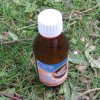Is birth by caesarean linked to allergy risk?
Interview with
Allergies can appear at any time in our lives including in old age, but that doesn’t mean their foundations aren’t laid early on. And some studies have pointed a finger at caesarian birth as a risk factor for food allergies. But is it? Rachel Peters works for the MCRI, which is a medical research institute based in Melbourne in Australia.
瑞秋-有那儿的食物过敏r the last two to three decades and it's prompted researchers to look at, well, what other things have been going on in the environment around the same time that allergies have been rising? And one of the things that has changed is how babies have been born. So we've seen a rise in the number of babies born by caesarean over the last 30 years. And this occurred at around the same time that food allergies were on the rise as well. So it did seem that there was possibly a link. So we explored this question in the health nurse study and we found that around one third of babies are born by caesarean in Melbourne, Australia. And food allergy occurred in around 10% of infants who were born by caesarean.
Will - Is that higher than other methods of delivery?
Rachel - It's actually quite similar. So in the babies who were born by a vaginal birth, 11% had a food allergy.
Will - So that's seemingly going against the grain of previous studies that said there was a link between C-section and having food allergies.
Rachel - I have to admit we were a bit surprised by the findings. You know, there are some studies out there showing that caesareans may increase the risk and a lot of this previous research used sort of poor proxies for food allergy, not gold standard outcomes that we've used in our study.
Will - So when people looked at rising food allergies and correlated it with the rising number of C-sections, what do you think might have led them to this conclusion?
Rachel - The hypothesis that could explain the link between how babies are born and developing an allergy is called the microbial exposure hypothesis. And this suggests that a lack of exposure to a variety of microbes and infections in early life can influence the developing immune system and predispose it to an allergic phenotype. So there are millions of microbes and bacteria in our body, and this is called the microbiome. And the microbiome plays a really important role in how the immune system develops. Now, babies get their first microbiome from their mothers during birth, and if a baby is born by a caesarean rather than a vaginal delivery, then they have less exposure to their mother's microbiome. So previous research has shown that babies who are born by a caesarean have a different microbial composition compared to babies who are born by a vaginal delivery. And then there's other research which shows that children who have a food allergy have a different microbial composition in their gut compared to children who don't have a food allergy. So as well as the temporal association that we'd seen between an increase in babies being born by caesarean and rising food allergies, there is also a plausible link that how a baby is born could affect their risk of an allergy.
Will - If your study showed that c-sections do not increase the amount of food allergies, what might be responsible for the rising numbers instead then?
Rachel - I guess there are a number of factors that contribute to why children develop food allergies, and we can't pinpoint it on just one thing. We've seen that babies who grow up around pet dogs or have older siblings and are therefore going to be exposed to more germs and microbes from the environment, have a lower risk of having allergies. There's some evidence that vitamin D plays a role, but one of the biggest things we know is that the timing that babies are introduced to allergenic foods in the infant's diet can actually help to prevent food allergies. So this has sort of been one of the biggest findings in the last 10 years in the field of food allergy. And research has found that babies who are introduced to allergenic foods such as peanut and egg in the first year of life can actually help prevent them from developing food allergies.
Will - So exposing children to potentially allergy causing foods at an early stage might benefit them?
Rachel - This is a strategy with the strongest evidence to date. So in Australia, we recommend that babies should be introduced to allergenic foods such as peanut and egg in the first year of life. And once you've introduced that food in the diet, it's important to keep giving your infants that food. We also looked at the difference between an elective and an emergency caesarean because we initially thought when we first did this study that perhaps we didn't find an association because we combined all types of caesareans, but they could actually confer a different level of risk. So in an emergency caesarean, labour has often already started and the baby has an opportunity to be exposed to the mother's microbiome. But in an elective caesarean, often labour hasn't begun and these are sort of considered to be more sterile and that the babies then aren't exposed to the mother's birth canal. So when we analyse this data, reassuringly, we actually found that still there was no difference in risk of babies developing allergies, depending on whether it was an emergency or an elective caesarean, or whether the cesarean occurred with or without the initiation of labour.



Comments
Add a comment